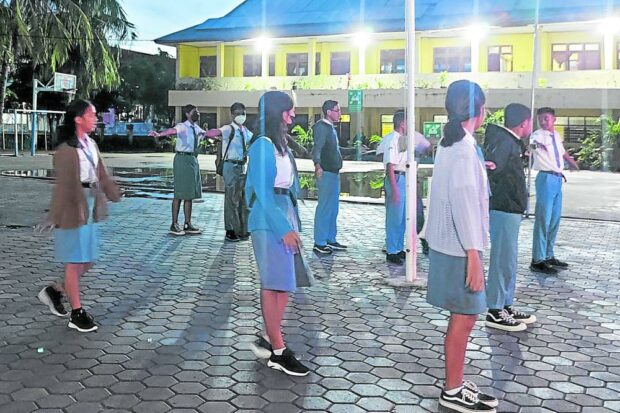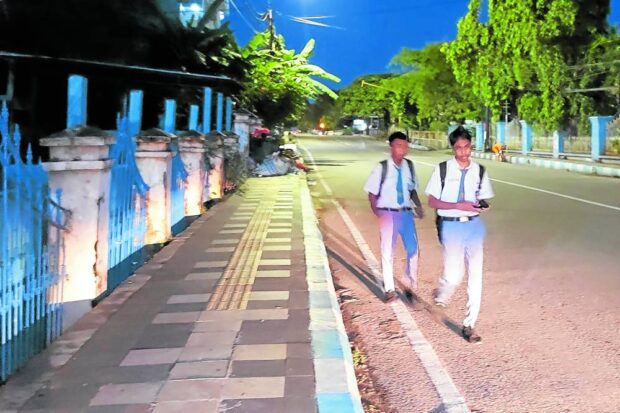Dawn classes for high school in Indonesia draw outcry

A March 6 photo shows high school students gathering for the roll call on campus early in the morning in Kupang, capital of Indonesia’s East Nusa Tenggara province. —AFP
KUPANG, Indonesia — Every morning in a city in Indonesia’s far east, sleepy teenagers can be seen trudging zombie-like through the streets on their reluctant way to school.
It is not a scene from some cheesy sci-fi offering but a controversial experiment to get the day off to a much earlier start for the sleep-deprived teens.
The pilot project in Kupang, the capital of East Nusa Tenggara province, has twelfth-graders at 10 high schools starting classes at 5:30 a.m.
Authorities say the scheme, announced last month by Gov. Viktor Laiskodat, is intended to strengthen children’s discipline.
According to parents, though, their children are “exhausted” by the time they get home. Schools in Indonesia generally start between 7:00 and 8:00 a.m.
Teens in their school uniforms are now walking down dark streets or waiting for motorcycle taxis to get to school on time.
“It is extremely difficult, they now have to leave home while it’s still pitch dark. I can’t accept this… their safety is not guaranteed when it’s dark and quiet,” Rambu Ata, a mother to a 16-year-old, told Agence France-Presse (AFP).
Her daughter Eureka now has to wake up at 4:00 a.m. to get ready and ride a motorbike to school.
“Now every time she arrives home, she is exhausted and falls asleep immediately because she is so sleepy,” Ata said.
Sleep deprivation
At least one scholar seems to agree.
“It has no correlation with the effort to improve the quality of education,” Marsel Robot, an education expert from Nusa Cendana University, told AFP.
In the long run, sleep deprivation could endanger the students’ health and cause a shift in behavior, he said.
“They will only sleep for a few hours and this is a serious risk for their health. This also will cause them stress and they will vent their stress by acting out.”

SNAPPY? NOT! Two sleepy high school students walk to school in the early morning of March 6 in Kupang, Indonesia where a pilot project has twelfth graders from ten high schools starting classes at 5:30 am. – AFP
Recommended sked
A 2014 study published by the American Academy of Pediatrics recommended that middle and high schoolers start classes at 8:30 a.m. or later to allow enough time for sleep.
The Kupang rule change was also challenged by local lawmakers, who demanded the government cancel what they called a baseless policy.
The government has maintained their experiment despite the criticism and even extended it to the local education agency, where civil servants also now start their day at 5:30 a.m.
Not everybody is unhappy with the policy.
Rensy Sicilia Pelokilla, a civil servant at the agency, told AFP that starting earlier made her healthier because she now has to join group exercise sessions in her office that she once slept through.
“As a civil servant I am ready to comply with the regulation and I’m going to do my best,” Pelokilla said.